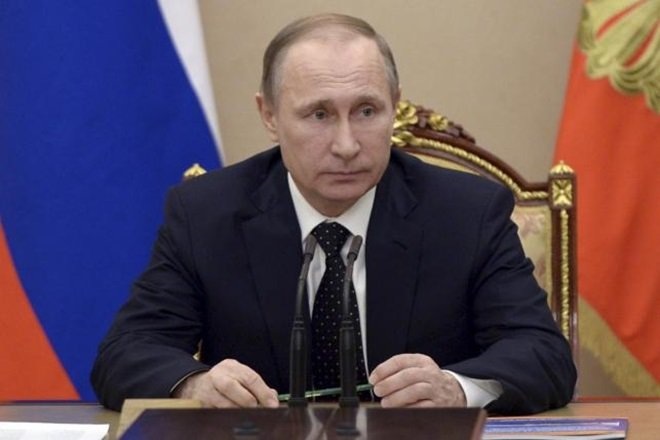In federal court in San Francisco, Twitter Inc. has sued the Trump administration to protect anonymous account holders critical of the president and his policies. The Central District Court of Tver, meanwhile, has ruled that images lampooning Vladimir Putin, including one showing the Russian president made up as a woman, are “extremist” and therefore unlawful.
Twitter took action on Thursday in response to an administrative summons issued March 14 by U.S. Customs and Border Protection, demanding that the social media company turn over records to identify who is behind an account called @ALT_USCIS. The account’s anonymous operators have been harshly critical of the new administration’s immigration policies, including Trump’s travel bans and executive order to build a wall along the Mexican border. Twitter noted in its suit seeking to block the summons that @ALT_USCIS is one of a number of accounts, including @alt_labor and @BadlandsNPS, that make up a “new and innovative” class of users “often vigorously opposed” to administrative actions.
You may also like to watch:
In other words, the anonymous Twitter users are engaging in core political speech protected by the First Amendment.
Or, as Twitter put it: “Permitting [Customs and Border Protection] to pierce the pseudonym of the @ALT_USCIS account would have a grave chilling effect on the free speech of that account in particular and on the many alternative agency accounts that have been created to voice their dissent to government policies.” The U.S. Supreme Court has long recognized that “anonymity is often essential to fostering” political speech, especially when the speaker could face retaliation, Twitter said in its court filing.
Irony permeates the Twitter-Trump duel, as the president himself is currently Twitter’s most famous user—one who often uses the digital network to lash out at “enemies,” real or perceived. Most notoriously, Trump took to Twitter to accuse former President Barack Obama, without any evidence, of tapping the phones at Trump Tower. Several current and former senior government officials have rejected the allegation as entirely unsupported.
Over in Russia, the Putin administration, operating without the hindrance of a First Amendment, has made swifter work of expression that offends the nation’s maximum leader. Authorities obtained the Tver court decision banning a number of social-network images, including one depicting Putin wearing lipstick, eye shadow, and fake eyelashes. Last month, the Russian Justice Ministry added some bite to the prohibition by making it punishable by fines or 15 days of detention.
The upshot? Dissent in Russia for now remains more dangerous than in the U.S.


